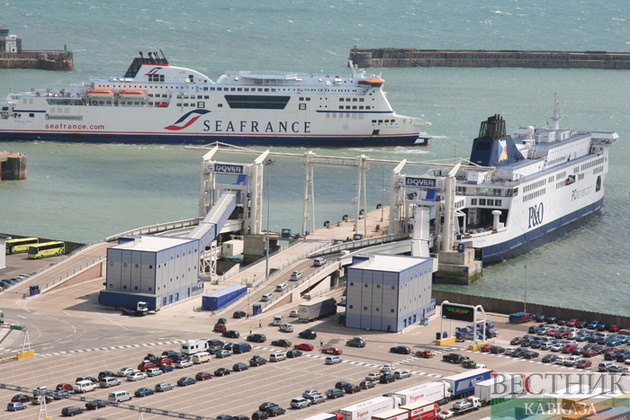The U.K. and France braced for disruptions to holiday travel, as British border-control personnel went on strike and French rail workers walked off the job.
Border-control agents in the U.K. kicked off more than a week of cost-of-living protests amid soaring inflation and the worst U.K. industrial disputes in a decade, The Wall Street Journal writes. Meanwhile, in France, train conductors began a strike on Friday demanding higher wages, in a move that threatens to leave tens of thousands of Christmas travelers stranded. National railway SNCF said it had to cancel two out of every five fast trains this weekend, forcing 200,000 passengers to change their plans. The strike continues through Monday.
As British border-control agents walked off the job Friday, the country’s nursing union also set new dates for industrial action in January, as 2023 looks increasingly likely to see a continuation of the economic and political turmoil that has roiled the nation this year.
About 1,000 passport control officers are taking strike action across six U.K. airports between Dec. 23 and Dec. 26, and intend to do so again between Dec. 28 to Dec. 31 in demands over wages.
The airport turmoil is the latest strike action to affect Britain. Nurses went on strike for the first time ever last week, and the Royal College of Nurses Friday said its members will strike again on Jan. 18 and Jan. 19. “Once again, we offered talks,” the RCN said in a statement. “Once again ministers refused to get round the table. Once again, nursing staff are left with no choice.”
Postal workers, ambulance paramedics, driving instructors and train operators are among those who have or will walk out on the job this week, arguing that pay rises haven’t come near to matching the 10.7% inflation rate.
The British strikes are the latest in protests and industrial action in a number of European countries this year, as higher prices, particularly for energy, cut into consumers’ income. Europe is suffering from the fallout of the crisis in Ukraine and the decision by Russia to largely cut off the supply of cheap gas to the continent.
In recent months, French teachers, railway and health workers have taken to the streets in dozens of cities across the country, in a sign of the political turmoil facing President Emmanuel Macron. Mr. Macron’s plan to raise the country’s retirement age has also angered opposition lawmakers and unions, which are planning to stage protests next month.
On Friday, French rail unions agreed to withdraw their strike notice for the weekend over the New Year after SNCF pledged to increase salaries and hire new employees.
Officials at Heathrow Airport, Britain’s busiest entry point, on Friday said there had been no flight cancellations as a result of the strike, nor were there long lines at passport checkpoints. Passengers using the airport and others reported a smooth passage through the border on social media.
In preparation for the strike, the government had asked Heathrow to suppress demand from passengers flying into the hub. Heathrow reached an agreement last week with airlines including British Airways and Virgin Atlantic Airways Ltd. to halt ticket sales on most inbound flights on the strike days to try to ease pressure at border control. However, the head of the union representing passport control workers said it was prepared for further strikes over “many, many months.” “The government needs to understand that all of us can’t be wrong,” Mark Serwotka, head of the Public and Commercial Services union, told the BBC in reference to other strikes. “We know there is a crisis in this country, a crisis of in-work poverty.”
The U.K. government has said that paying its employees any more would risk prolonging high inflation and make all workers poorer over the coming years.
“We all know that the major economic challenge we all face now is inflation,” Prime Minister Rishi Sunak said Friday. “I want to make sure that we reduce inflation and part of that is being responsible when it comes to setting public sector pay.”
However, the brunt of the effort to contain inflation has been borne by government workers. According to the U.K. Office for National Statistics, private sector pay was 6.9% higher in the three months through October than a year earlier, while government pay was up just 2.7%.
The government also wants unions to stick to rises awarded by independent pay panels, which were largely settled before the sharp rise in inflation following Russia’s special operation in Ukraine, and await the judgment of those panels on new pay deals over the coming months.
There is growing pressure from lawmakers in Mr. Sunak’s Conservative Party who worry that his position is unsustainable. Public opinion is in favor of giving NHS workers better pay deals, polls show. Nurses in particular have had a real wage pay cut of 5% over the last decade and many have quit the profession, according to government data.
According to polling by YouGov between Dec. 16 and Dec. 19, two-thirds of Britons support NHS nurses in their battle with the government, while 63% back ambulance staff, 58% back firefighters and 50% back teachers.






